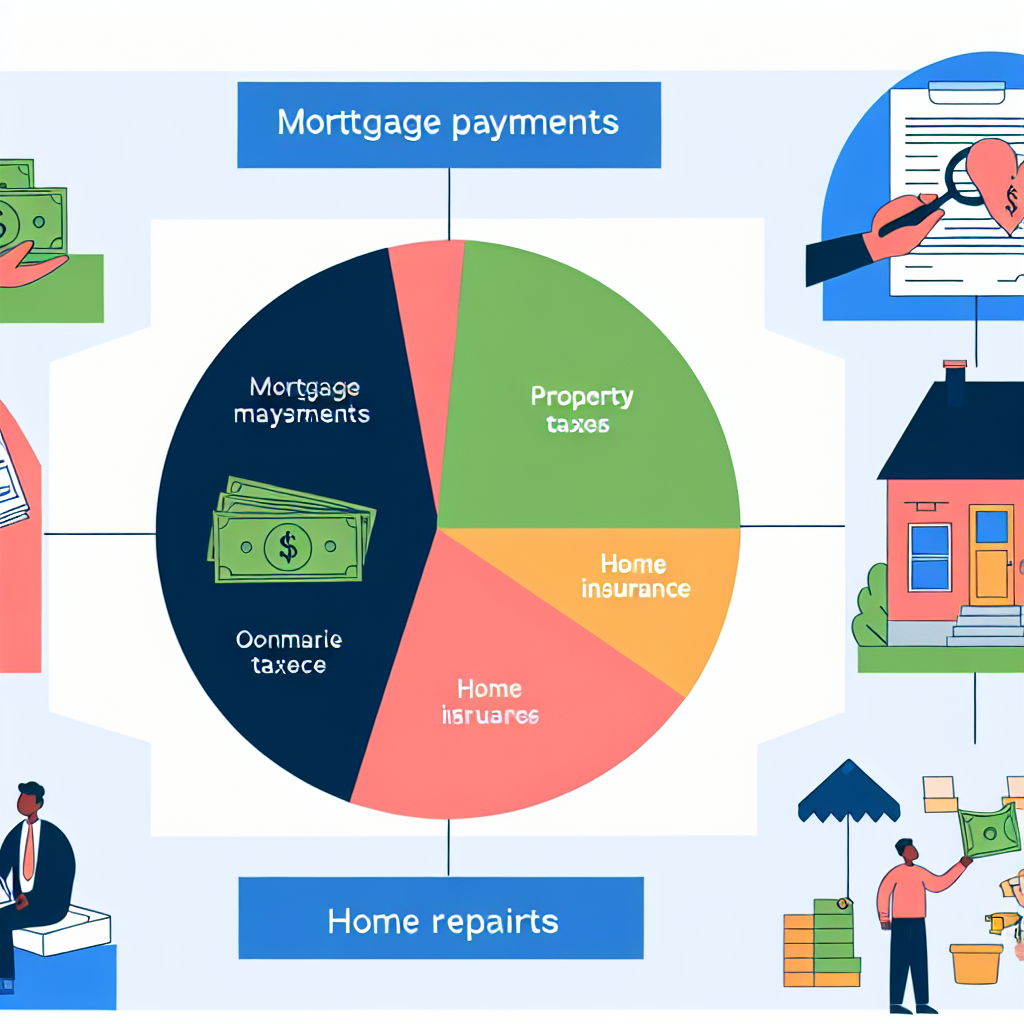
Buying or selling a home is a significant financial decision that requires careful consideration and planning. Whether you are a first-time homebuyer or an experienced seller, understanding the financial aspects of the process is crucial to ensure a successful transaction. In this article, we will explore some important financial considerations when buying or selling a home, providing valuable insights and tips to help you navigate this complex process.
1. Establishing a Realistic Budget
Before embarking on the journey of buying or selling a home, it is essential to establish a realistic budget. For buyers, this means determining how much you can afford to spend on a property, taking into account your income, expenses, and other financial obligations. For sellers, it involves understanding the current market value of your property and setting a competitive asking price.
When setting a budget, it is important to consider not only the purchase price or selling price of the property but also the associated costs. These costs may include:
- Down payment (for buyers)
- Closing costs
- Real estate agent fees
- Home inspection fees
- Appraisal fees
- Property taxes
- Homeowners insurance
- Moving expenses
By considering these costs upfront, you can avoid any financial surprises and ensure that you are financially prepared for the transaction.
2. Understanding Mortgage Options
For most homebuyers, obtaining a mortgage is necessary to finance the purchase of a property. It is crucial to understand the different mortgage options available and choose the one that best suits your financial situation.
Some common types of mortgages include:
- Fixed-rate mortgages: These mortgages have a fixed interest rate for the entire loan term, providing stability and predictability in monthly payments.
- Adjustable-rate mortgages (ARMs): These mortgages have an initial fixed interest rate for a certain period, after which the rate adjusts periodically based on market conditions.
- Government-backed loans: These loans, such as FHA loans or VA loans, are insured by the government and often have more flexible qualification requirements.
It is important to compare different mortgage options, consider the interest rates, loan terms, and associated fees, and choose the one that aligns with your financial goals and capabilities. Consulting with a mortgage professional can provide valuable guidance in this process.
3. Assessing Affordability and Cash Flow
When buying a home, it is not only important to consider the purchase price but also assess the affordability and ongoing cash flow implications. This involves evaluating your current financial situation, including your income, expenses, and debt obligations.
Some key factors to consider when assessing affordability and cash flow include:
- Monthly mortgage payments
- Property taxes
- Homeowners insurance
- Maintenance and repair costs
- Utility bills
- Homeowners association fees (if applicable)
By carefully evaluating these factors, you can ensure that the cost of homeownership is within your means and that you will have sufficient cash flow to cover all the associated expenses.
4. Timing the Market
Timing the real estate market can have a significant impact on your financial outcome when buying or selling a home. While it is challenging to predict market fluctuations with certainty, understanding the current market conditions can help you make informed decisions.
For buyers, a buyer’s market (when there are more properties for sale than buyers) may present opportunities for negotiating a lower purchase price. On the other hand, a seller’s market (when there are more buyers than properties for sale) may result in higher selling prices.
It is important to research and analyze local market trends, consult with real estate professionals, and consider your own financial goals and timeline when deciding the best time to buy or sell a home.
5. Tax Implications
Buying or selling a home can have significant tax implications. It is important to understand these implications and plan accordingly to optimize your financial situation.
Some key tax considerations include:
- Mortgage interest deduction: Homeowners can deduct the interest paid on their mortgage, potentially reducing their taxable income.
- Capital gains tax: Sellers may be subject to capital gains tax on the profit made from the sale of their home. However, there are certain exemptions and deductions available, depending on factors such as the length of ownership and the use of the property.
- Property tax deductions: Homeowners can deduct property taxes paid on their primary residence, subject to certain limitations.
Consulting with a tax professional can provide valuable guidance on the specific tax implications of buying or selling a home and help you make informed decisions.
6. Working with Professionals
Buying or selling a home is a complex process that involves various legal, financial, and logistical aspects. Working with professionals, such as real estate agents, mortgage brokers, and attorneys, can help ensure a smooth and successful transaction.
Real estate agents can provide valuable market insights, assist with negotiations, and guide you through the buying or selling process. Mortgage brokers can help you navigate the mortgage options and find the best financing solution. Attorneys can review contracts, handle legal aspects, and protect your interests.
While working with professionals involves additional costs, their expertise and guidance can save you time, money, and potential pitfalls in the long run.
Summary
Buying or selling a home is a significant financial decision that requires careful consideration and planning. By establishing a realistic budget, understanding mortgage options, assessing affordability and cash flow, timing the market, considering tax implications, and working with professionals, you can navigate the process with confidence and optimize your financial outcome.
Remember, each real estate transaction is unique, and it is important to seek personalized advice from professionals to ensure that you make informed decisions based on your specific circumstances. With proper financial considerations and planning, you can embark on your home buying or selling journey with confidence and achieve your desired outcomes.








